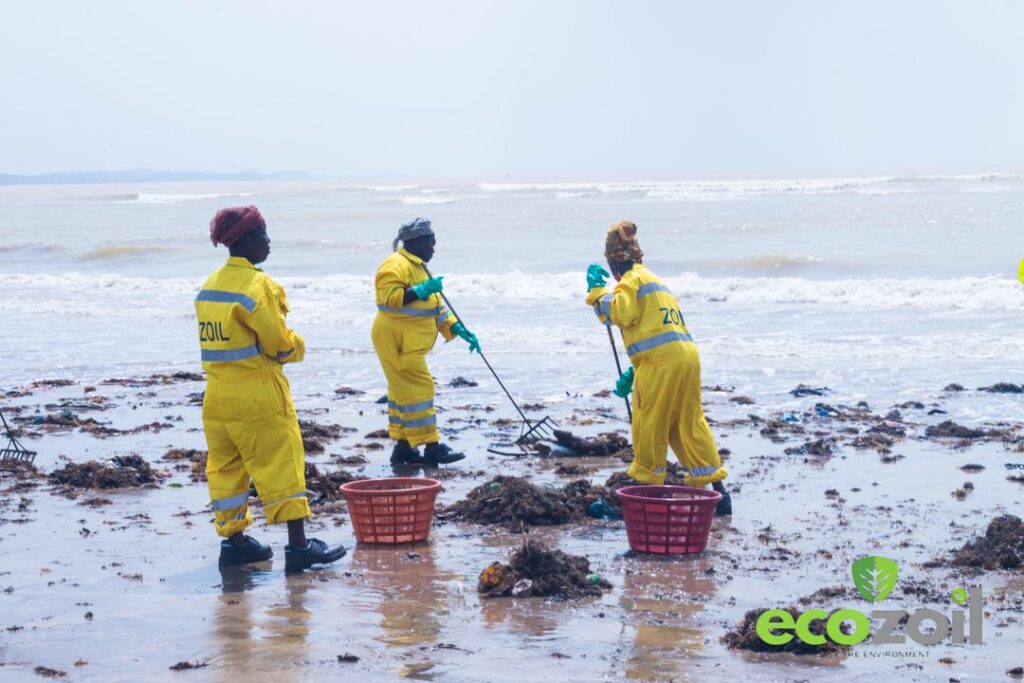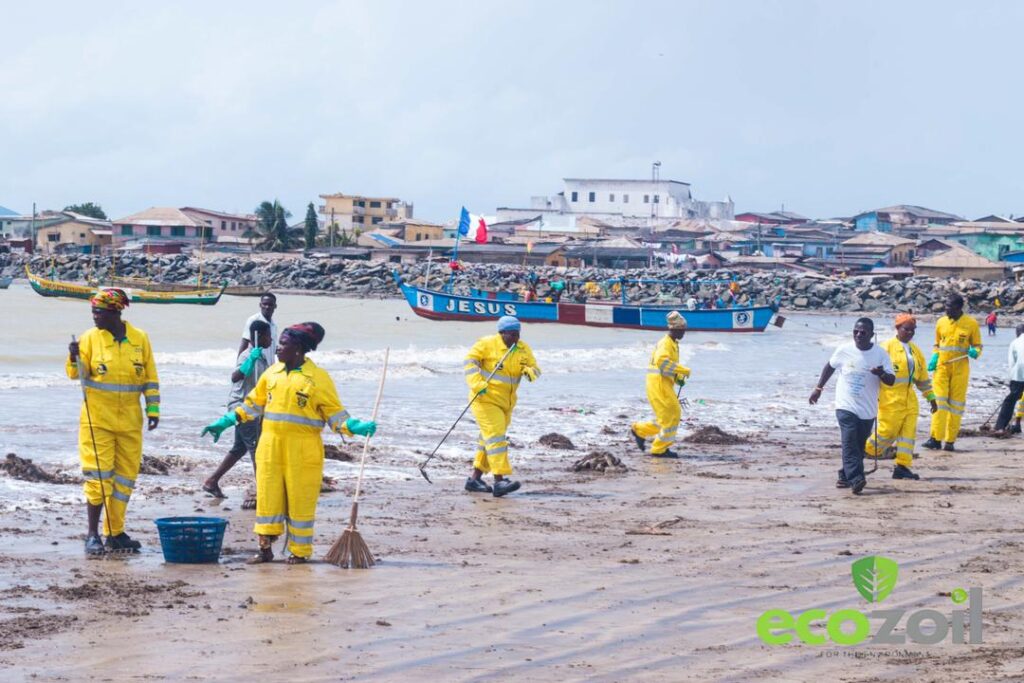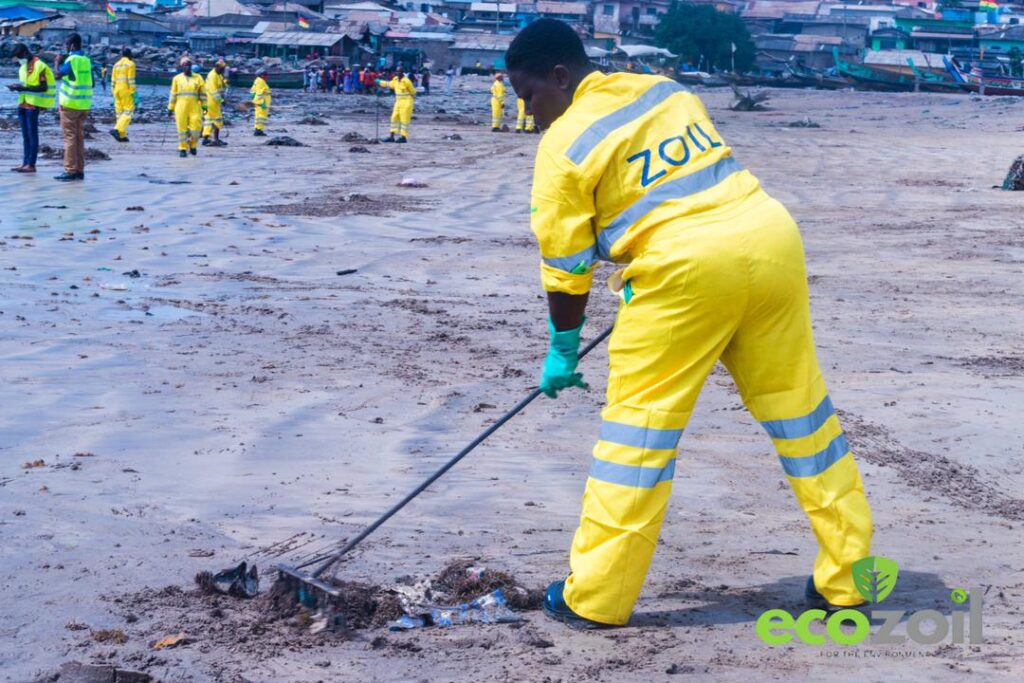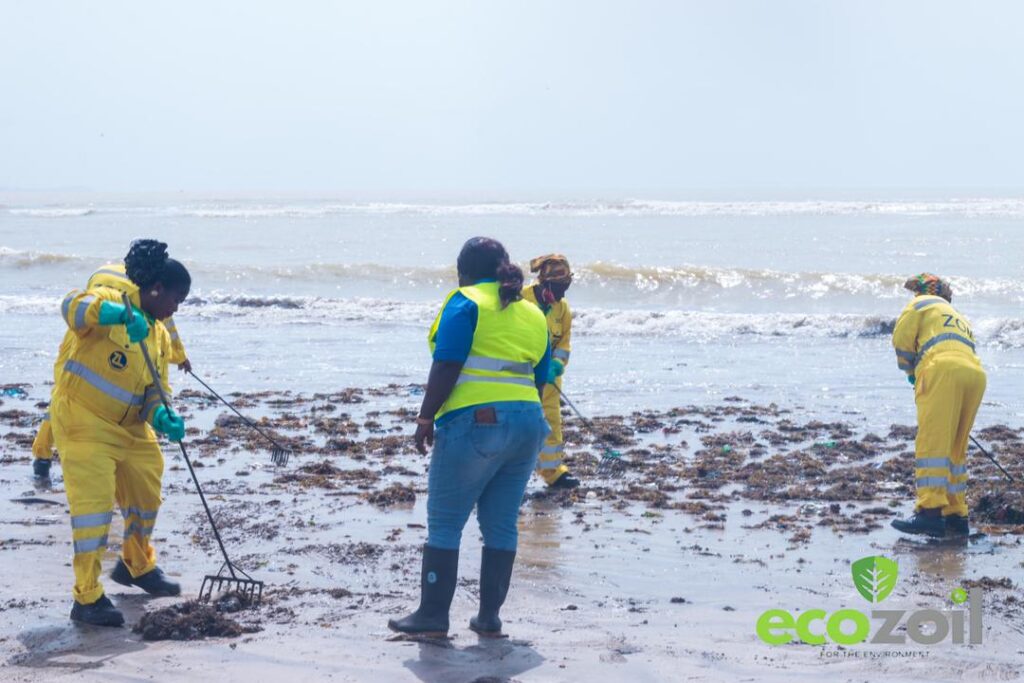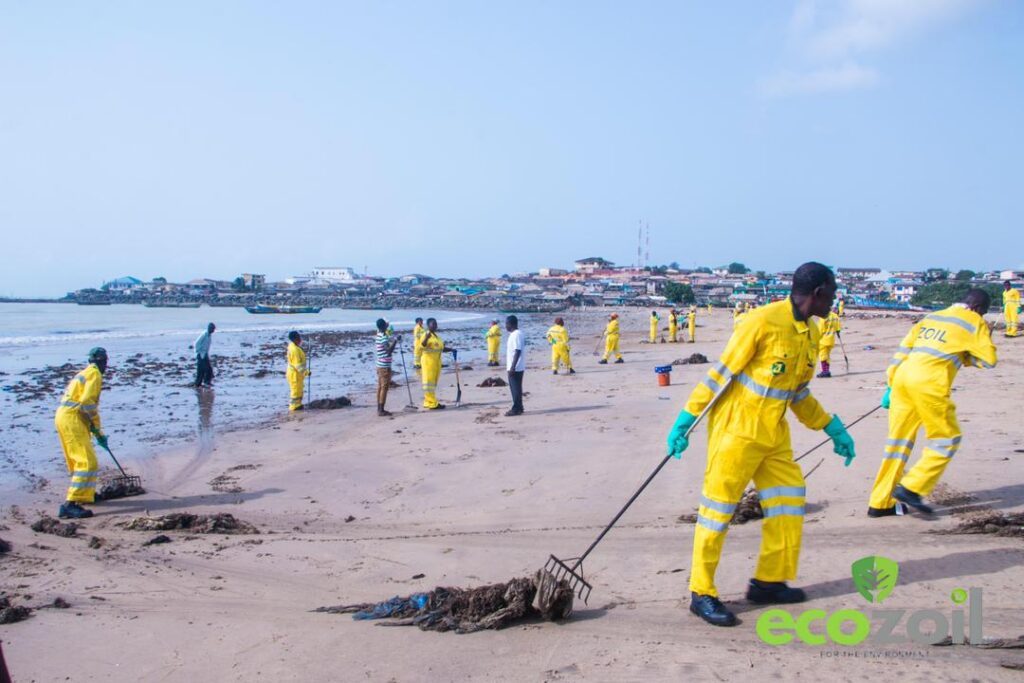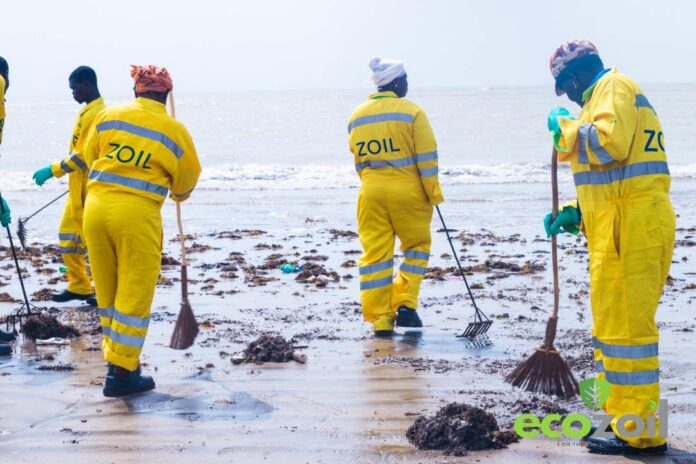EcoZoil, a subsidiary of Jospong Group of Companies (JGC), has decried the lack of regular cleanups of the country’s beaches over the past years.
Speaking to the media, the General Manager of EcoZoil, Mrs. Abitha Odame-Nyanteh, said the development has contributed to loads of filth at the country’s beaches, particularly the public beaches.
She said this was not the case during the period when EcoZoil (formerly Zoil) used to clean the country’s beaches regularly.
“EcoZoil, formerly Zoil, used to clean the beaches and everyone could attest that you could see Zoil workers on the beaches in our yellow uniforms. But for a while, the project was put on hold because the government wanted to do a reassessment. But we have realised over the past years that because the work has been held on the filth that is being generated at the beaches has increased massively which is not the best,” she said.
Mrs Odame-Nyanteh made the observation when her company took its nationwide beach cleanup exercise to the Western Region. The exercise forms part of EcoZoil’s corporate social responsibility (CSR) in helping to keep beaches in the country clean.
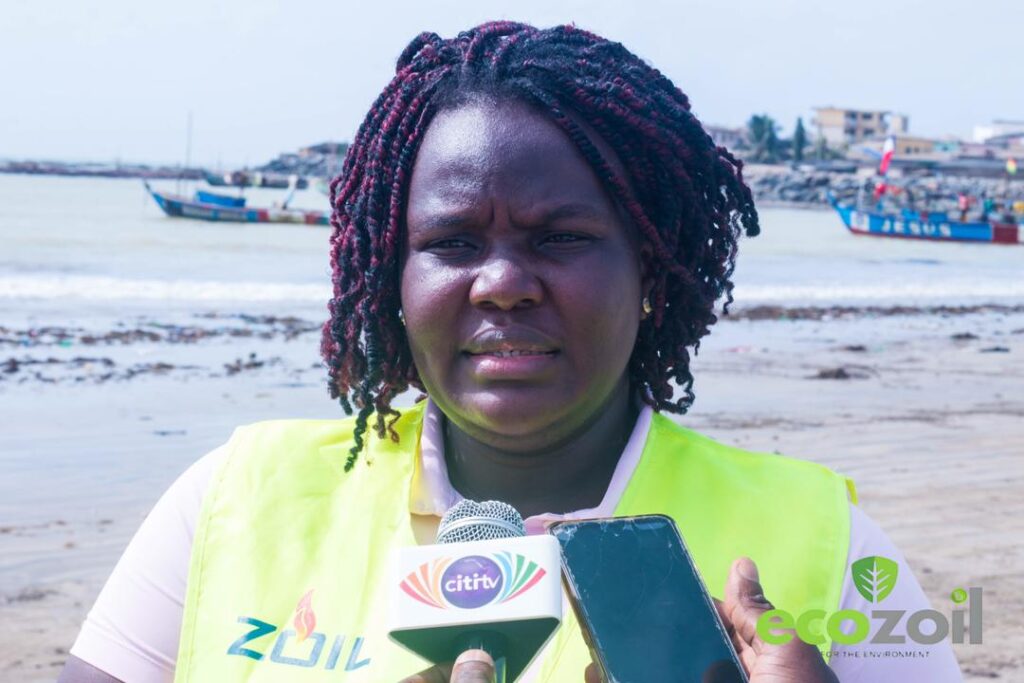
The Western Region exercise kicked off at the Apo beach in the Shama District on Thursday, March 31, 2022.
According to the MD of EcoZoil, Ghana was blessed with a long coastline stretch which, if effectively harnessed, can benefit the country enormously.
“But you realise that this potential is not being harnessed, and it is so because of how dirty our beaches have become. Throughout our journey, it can be seen that it is mostly the private beaches that are clean,” she noted.
She attributed the cleanliness of the private beaches to effective and efficient management by the private owners.
However, she lamented that the sight of the country’s open/public beaches was nothing to write home about.
“…and people have turned the beaches into dumpsites, refuse dumps and places of defecation which is not the best,” she advised.
Again, the EcoZoil General Manager said beaches contribute to the gross domestic product (GDP) of Ghana’s economy.
“Aside from the fact that you can get fish from the sea, tourism is one aspect that must also be looked at,” she stressed.
Mrs. Odame-Nyanteh, therefore, made a passionate appeal to every Ghanaian to join them to make, especially the public beaches clean and healthy. She commended the chief fisherman and residents along the Apo beach for their high patronage.
“It is clear that we have a situation at our beaches so need everyone on board, the community, the assembly, the chief fisherman and the government to help maintain our beaches clean,” she urged.
Further, she stressed that when the beaches are clean, it will inure to the benefit Ghanaians.
“Our quality of life is improved and even when we get involved it will be a source of employment generation for people along the communities, and in the long run, Ghana will stand to benefit,” the EcoZoil General Manager said.
On the issue of open defecation at public beaches, Mrs. Odame-Nyanteh explained that it had more to do with culture rather than the lack of toilet facilities.
“This is because there are communities with built public toilet facilities, but residents still prefer to come to the beach to ease themselves,” she explained.
And though she agreed for more public toilet facilities to be built in the communities, she also called for public education and the enforcement of the sanitation bye-laws.
She disclosed that plans were afoot by her company to build a mini recycling plant at some selected beaches and communities to help in waste segregation.
A fisherman who is resident in Shama, Mr. Kwaku Nelson Odoom, stated that “the only way we can maintain a clean beach is that we have to sensitise and engage the communities.”
He indicated that the community members need to be sensitised on the health risks of the practice of open defecation.
“This has been a tradition: they prefer easing themselves at the beaches instead of going to public toilets,” he said.
He also entreated the community leaders to help in the education of their members on the negative effects of defecating on the beaches.
